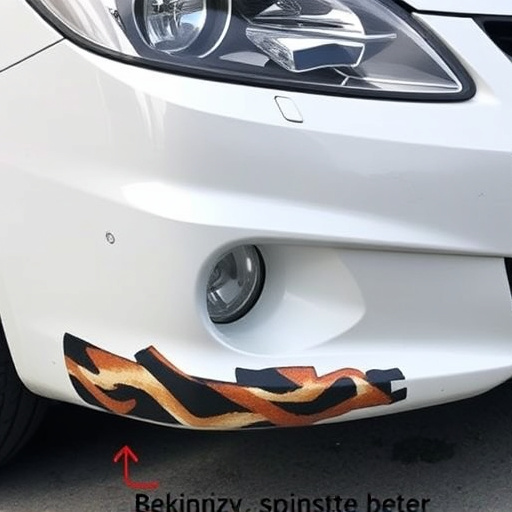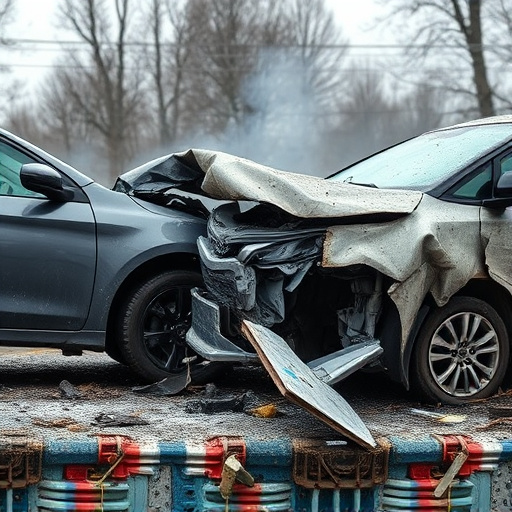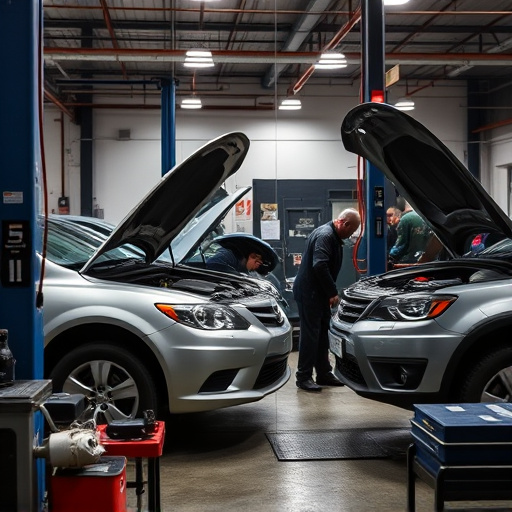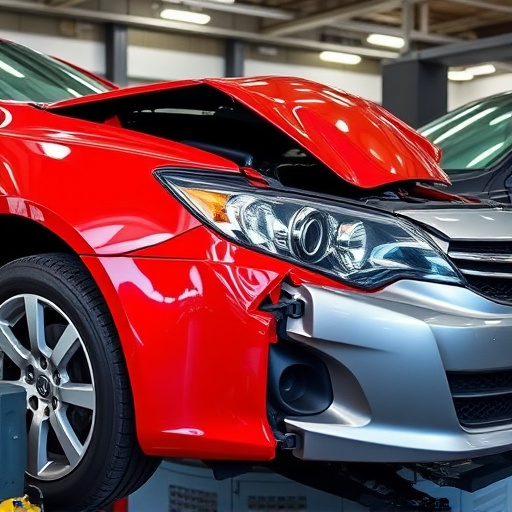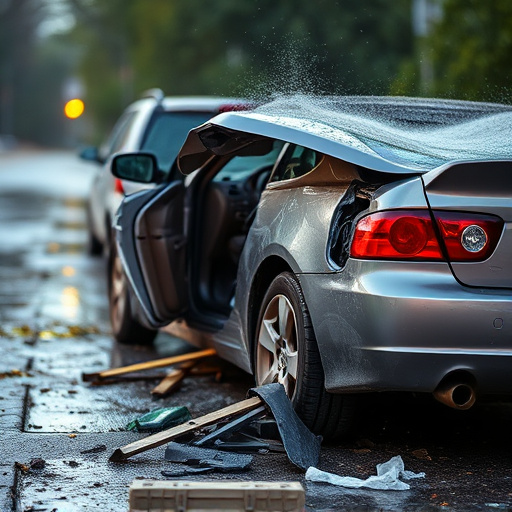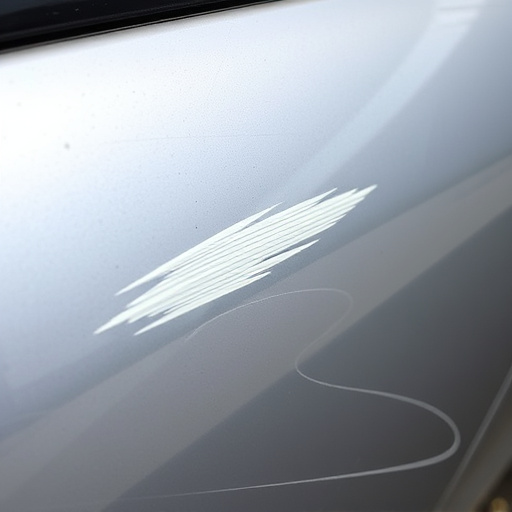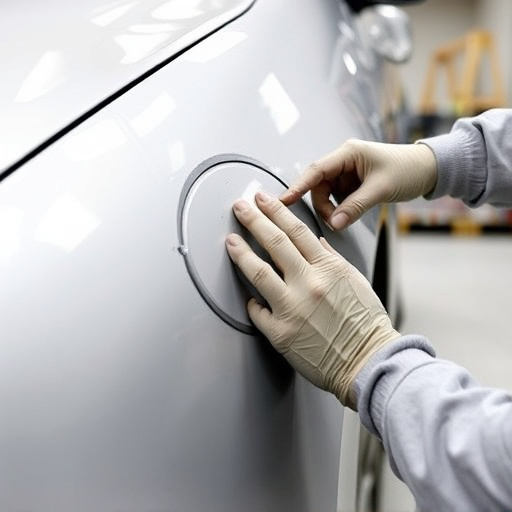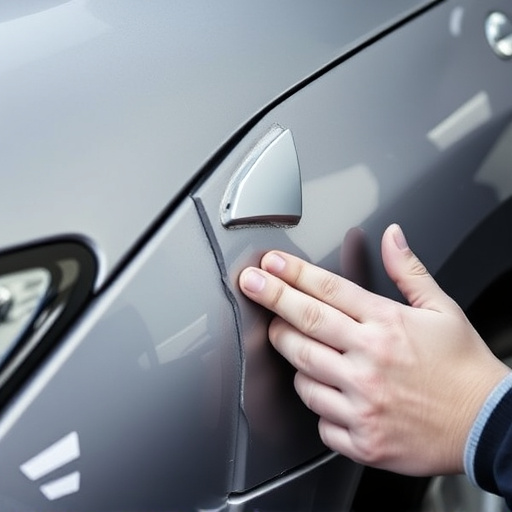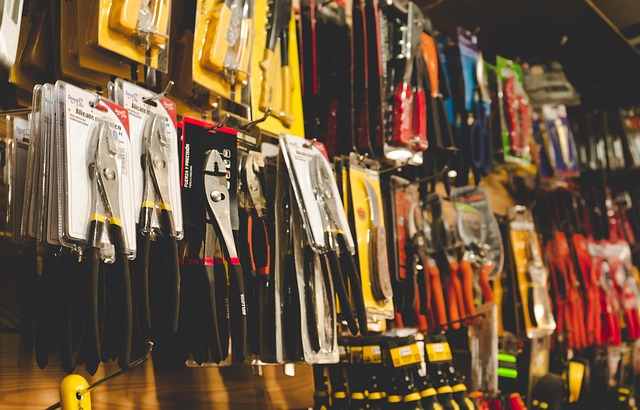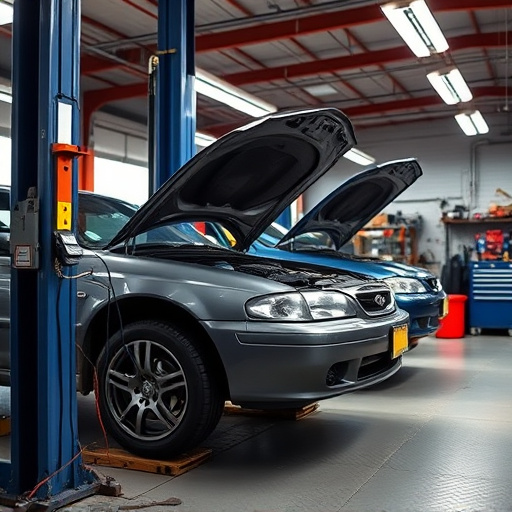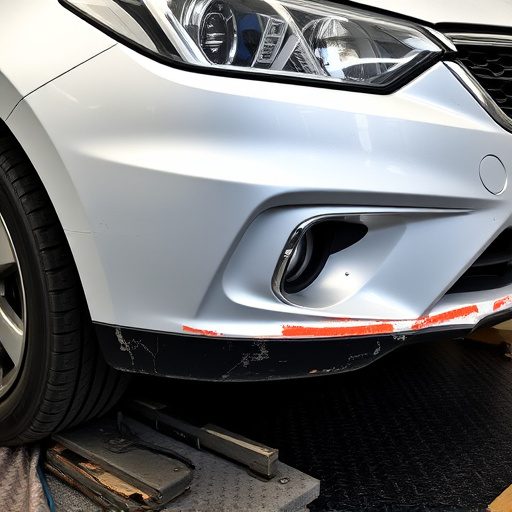Collision repair certification programs provide aspiring auto body technicians with a wide range of vital skills from metal straightening to advanced paint applications, ensuring high-quality auto body services and industry standards. These structured training initiatives keep pace with industry evolution, boosting employability and long-term career growth prospects by offering specialized knowledge, practical expertise, and industry connections. Understanding these programs empowers individuals to make informed decisions, unlocking diverse career opportunities within the growing automotive sector.
Collision repair certification is a crucial step towards a successful career in automotive bodywork. However, many aspiring technicians are overwhelmed by myths and misconceptions about these programs. This article aims to debunk common myths, highlight the real value of certified training, and guide you through navigating the requirements for a promising collision repair career. By understanding these aspects, you’ll be better equipped to make informed decisions on your path to professional growth in the automotive industry.
- Debunking Common Collision Repair Certification Misconceptions
- The Real Value of Certified Training Programs
- Navigating Requirements for Successful Career Path
Debunking Common Collision Repair Certification Misconceptions

Many aspiring technicians in the automotive industry are often misled by misconceptions surrounding collision repair certification programs. It’s time to dispel some myths and provide clarity on what these programs entail and why they’re essential for careers in auto body services. One common misunderstanding is that certification is only required for those specializing in vehicle paint repair, but this could not be further from the truth. Collision repair certification covers a wide range of skills, including metal straightening, structural repair, and, yes, even expert vehicle paint applications—all crucial aspects of car bodywork services.
Another misconception is that these programs are only for those looking to start their own business or become highly specialized. In reality, collision repair certification can be a valuable asset for anyone entering the field, from entry-level technicians to seasoned professionals. It ensures that individuals possess the necessary knowledge and skills to perform high-quality auto body services, maintaining industry standards and customer satisfaction. By understanding these facts, aspiring collision repair technicians can make informed decisions about their training, ensuring they’re well-prepared for a rewarding career in this dynamic sector.
The Real Value of Certified Training Programs
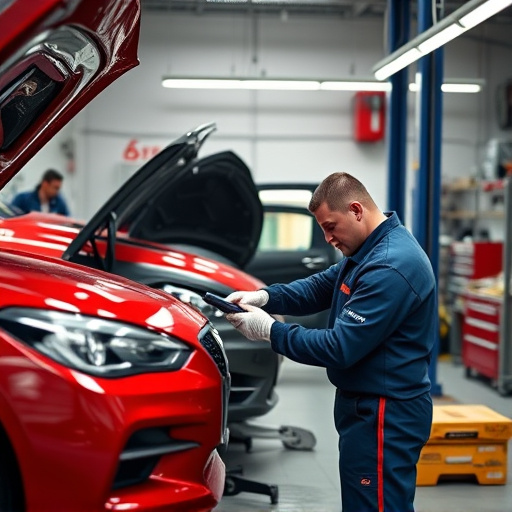
Collision repair certification programs offer much more than just a set of skills; they provide a robust framework for individuals looking to excel in the automotive industry. These certified training programs are designed to keep pace with evolving technologies and industry standards, ensuring that graduates are well-prepared to tackle contemporary car damage repair challenges. By participating in such programs, aspiring technicians gain access to specialized knowledge, practical experience, and industry connections that can significantly enhance their employability in the competitive job market for automotive repair.
The real value lies not only in the immediate benefits of securing a job but also in long-term career advancement prospects. Collision repair certification equips individuals with the expertise required to handle complex collision damage repair tasks, fostering confidence and proficiency in their craft. Moreover, these programs often include ongoing support and updates, ensuring that technicians stay current with the latest advancements in automotive repair technologies and safety standards, thereby solidifying their position as valuable assets within the industry.
Navigating Requirements for Successful Career Path
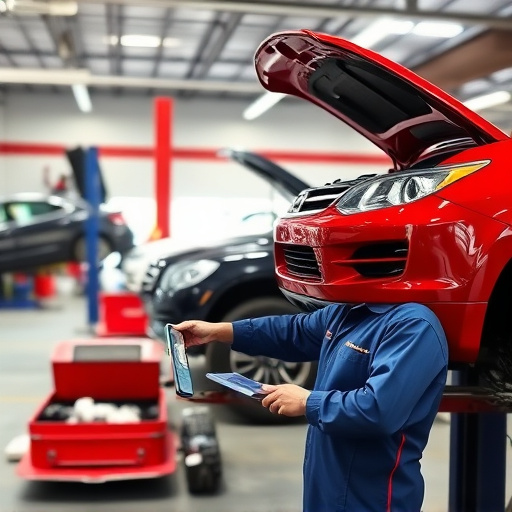
Navigating the requirements for a successful career in collision repair involves understanding the distinct paths to certification and the skills needed to excel. While many auto repair services and vehicle paint repair programs offer training, formal collision repair certification programs are designed specifically to equip individuals with the specialized knowledge required to handle complex auto maintenance tasks related to accident damage restoration. These programs combine theoretical instruction with hands-on experience in areas such as panel replacement, bodywork, painting, and electronic systems.
Successful candidates must demonstrate proficiency in safety procedures, precision measuring techniques, and adherence to industry standards. Keeping up with evolving technologies in vehicle design and repair materials is also crucial. By meeting these requirements, aspiring collision repair technicians can secure competitive edges in a growing field, opening doors to diverse career opportunities within the auto industry.
Collision repair certification programs play a pivotal role in empowering individuals to enter and excel in the automotive industry. By debunking myths and understanding their value, aspiring technicians can navigate the requirements with confidence, ensuring they acquire the necessary skills and knowledge for successful careers. Investing in certified training is a proactive step towards embracing a fulfilling and lucrative profession in collision repair.
